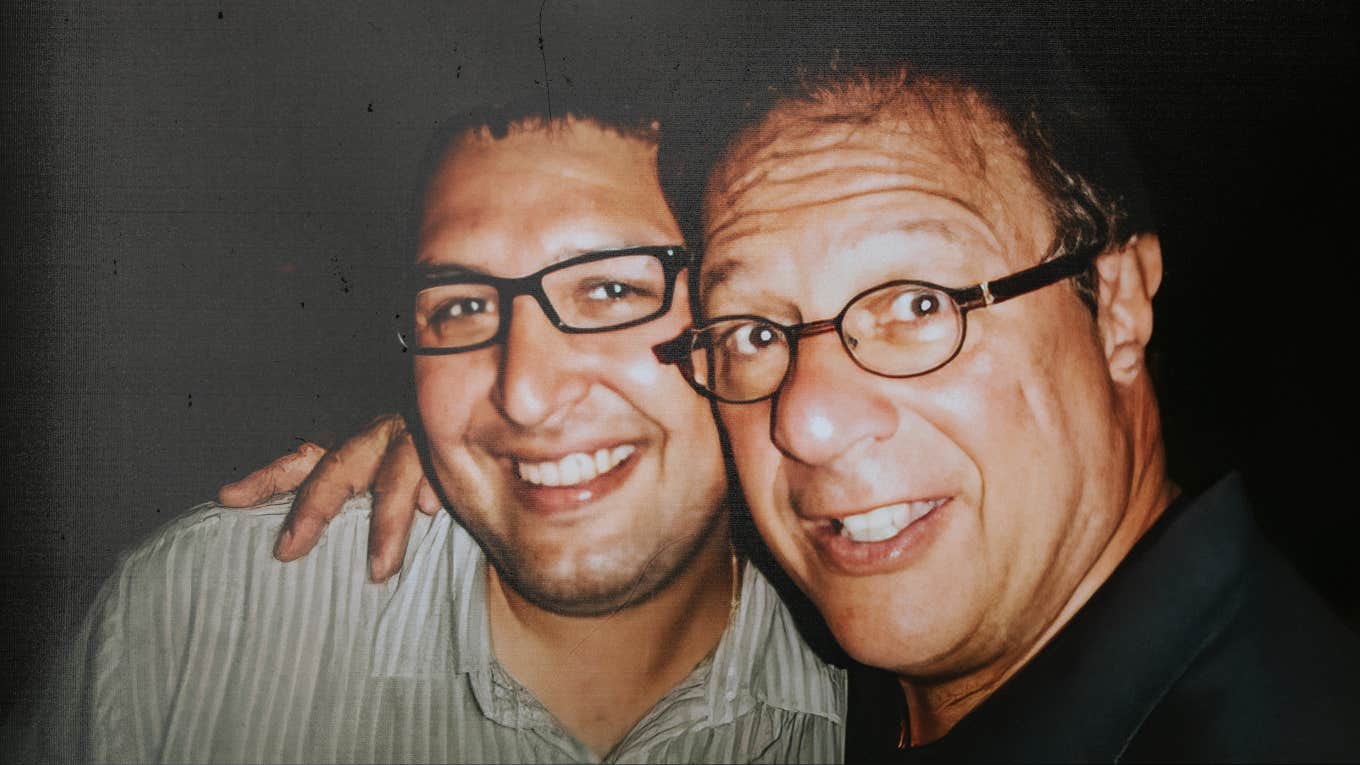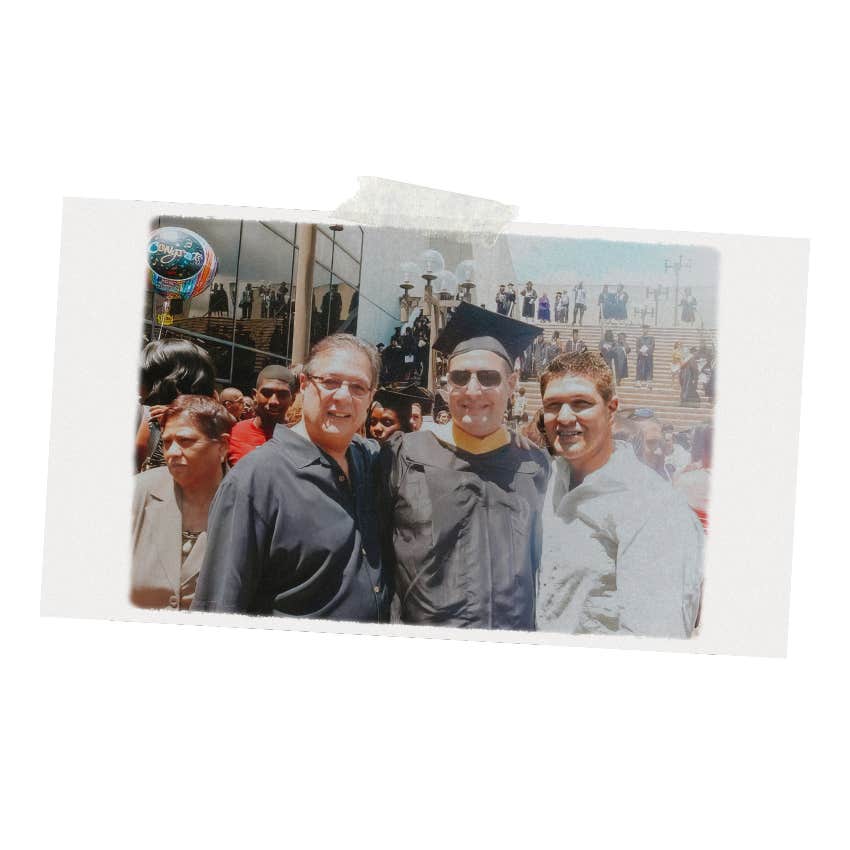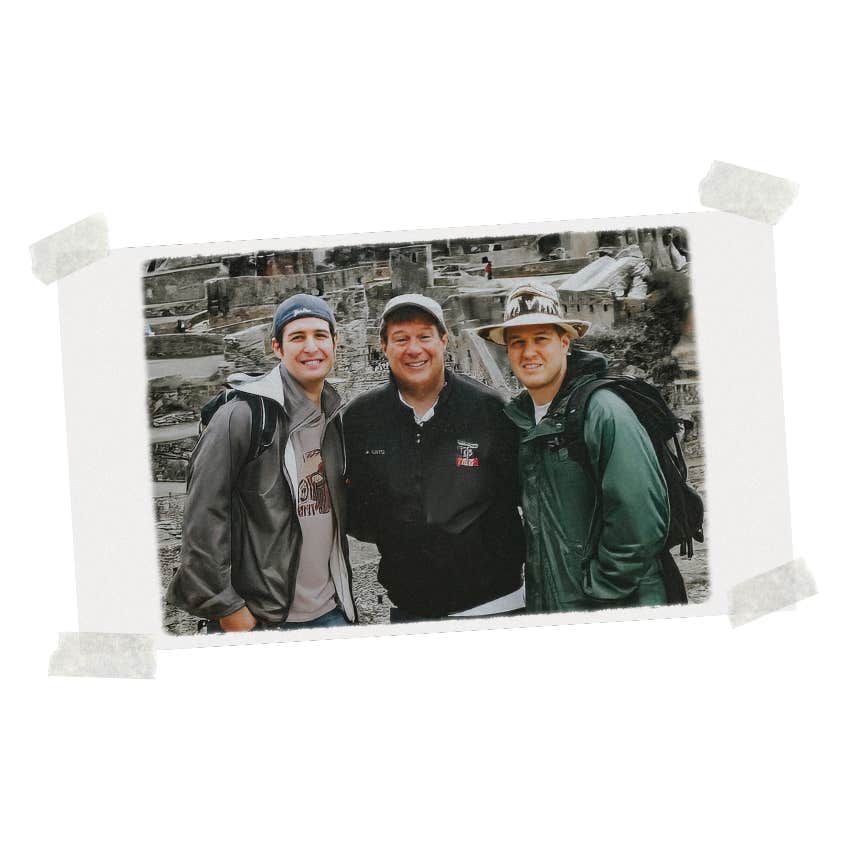My Dad Died By Suicide: The True Story Of How I Survived
What you can learn from the hardest day of your life.
 The Author And His Father | Courtesy Of Author
The Author And His Father | Courtesy Of Author Experiencing the suicide of a parent is one of the most difficult things I have ever endured. There are so many unanswered questions that haunt you if you let them. Grief is a process that can take time and is very personal; we all experience it differently. But as hard as it can be, so many lessons and blessings can be learned from a tragedy like this.
Here's my dad died by suicide: the true story of how I survived.
1. Acceptance
It’s impossible to not think about the “what ifs” or the “shoulda, coulda’s” when they cross your mind. I’d be lying if I said they didn’t enter my mind from time to time. However, the only thing they ensure is more pain! If there was something we could have done to prevent my dad from dying by suicide, we would have.
Many emotions surface at times like these. Including anger, grief, envy, and fear. It is important to sit with your emotions and not push them away. It is important to give yourself the chance to fully grieve. Once you have grieved, you can then learn acceptance. Only then can you have some semblance of peace.

Photo: Author
2. There is always a lesson and a gift even in the darkest of situations
Finding a lesson in something that feels so tragic isn’t easy. It’s important to experience your feelings if you want to heal. In our culture, we are told to feel a certain way when something tragic happens. We are taught that guilt and shame are part of who we are. This doesn’t have to be the case.
One way I have found to make problems or tragedies easier to handle is by looking for a lesson or a gift. There may never be a perfect time to start the healing, so choose to do it now.
Here’s an exercise to help:
Think of a situation that causes you pain. That may have caused you to feel guilt, shame, or blame others.
Take a deep breath as you remember the person or people involved and take a step back from the situation like you are watching a movie.
AdvertisementWhat could be learned from this situation?
How can I live my life differently?
How can I grow from what happened?
Write down what you could have learned.
Can you see how you were able to grow as a person because of this lesson? (Remember, some of the greatest personal growth comes through pain!)
3. Good luck, bad luck ... who knows?
When something painful happens, people immediately want to put a label on it. Your assumptions or judgments cause you more pain than anything else.
I use a story about a farmer with my clients to make this point.
Once, there was a farmer who worked his poor farm together with his son and their horse. When the horse ran off one day, neighbors came to say, “How unfortunate for you!” The farmer replied, “Maybe yes, maybe no.”
When the horse returned, followed by a herd of wild horses, the neighbors gathered around and exclaimed, “What good luck for you!” The farmer stayed calm and replied, “Maybe yes, maybe no.”
While trying to tame one of the wild horses, the farmer’s son fell and broke his leg. He had to rest up and couldn’t help with the farm chores. “How sad for you,” the neighbors cried. “Maybe yes, maybe no,” said the farmer.
Shortly thereafter, a neighboring army threatened the farmer’s village. All the young men in the village were drafted to fight the invaders. Many died. But the farmer’s son had been left out of the fighting because of his broken leg. People said to the farmer, “What a good thing your son couldn’t fight!” “Maybe yes, maybe no,” was all the farmer said.
The lesson here is acceptance, judgment, and allowing divinity to make things right. When I look back on my dad’s suicide, I know that in addition to the pain, I have received some great gifts and blessings from this tragedy.
4. Value each day and each breath
I used to take life for granted. I would let myself lose days or even weeks to feeling like a victim, anger, and grief. I learned there is a place for those things, but I do not have to dwell and stay stuck. If I choose to give my attention to drama, then I am pained. Instead, I choose to practice gratitude in my darkest moments.
5. Finally, don’t let it get too dark
Sometimes, it feels like society expects us to be a certain way. Society wants you to mourn or garner revenge depending on the situation. We need not garner revenge on ourselves. No matter the situation, we did the best we could at the time with what we had.
The best thing we can do to honor ourselves and the victim is to forgive. We have two choices: we can forgive now or forgive later. Losing a parent to suicide is tragic and sad.

Photo: Author
You don’t need to get stuck. There is life on the other side. You are allowed to experience joy. You can celebrate and talk about your friend or relative.
Brent Berman is a holistic psychotherapist in Jupiter, Florida. He has extensive experience in the field of addiction and believes in changing the world one smile at a time.
